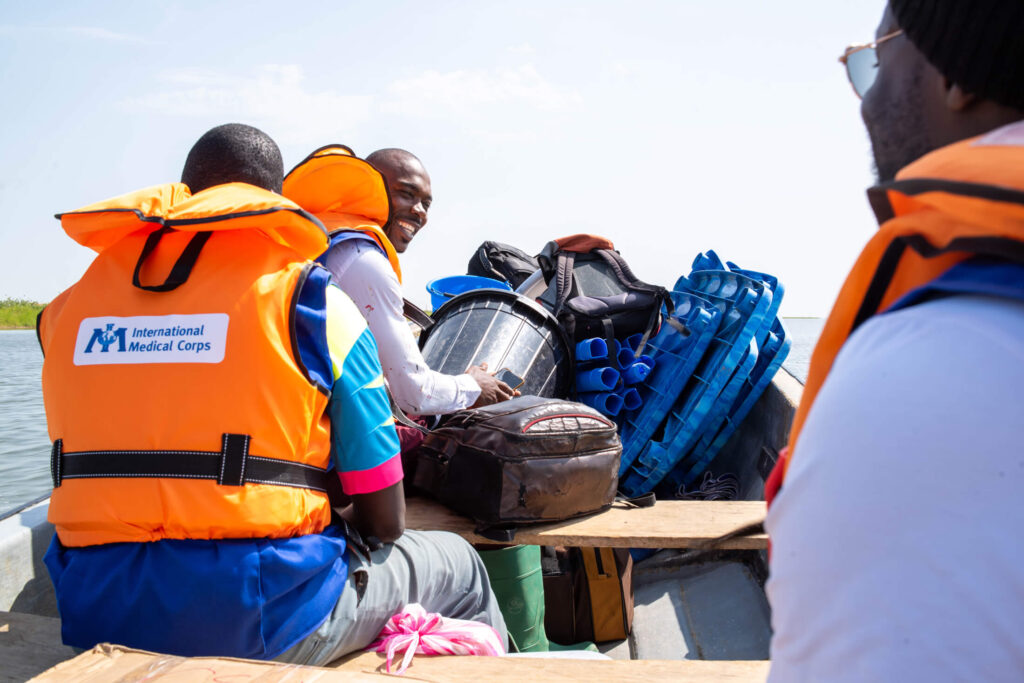Starting in July 2024, the Far North region of Cameroon began experiencing excessive rainfall that led to swelling rivers and flooding—all of which worsened ongoing security issues in the area. The floods—which have impacted more than 400,000 people—have led to food insecurity and displacement, in addition to making healthcare much harder for communities to access.
International Medical Corps has worked in Cameroon since 2008, providing a host of services including health programmes, disease surveillance, nutrition activities, and mental health and psychosocial support. In response to the flooding in the Far North, our medical staff members frequently travel to the region providing medical services in hard-to-reach communities.
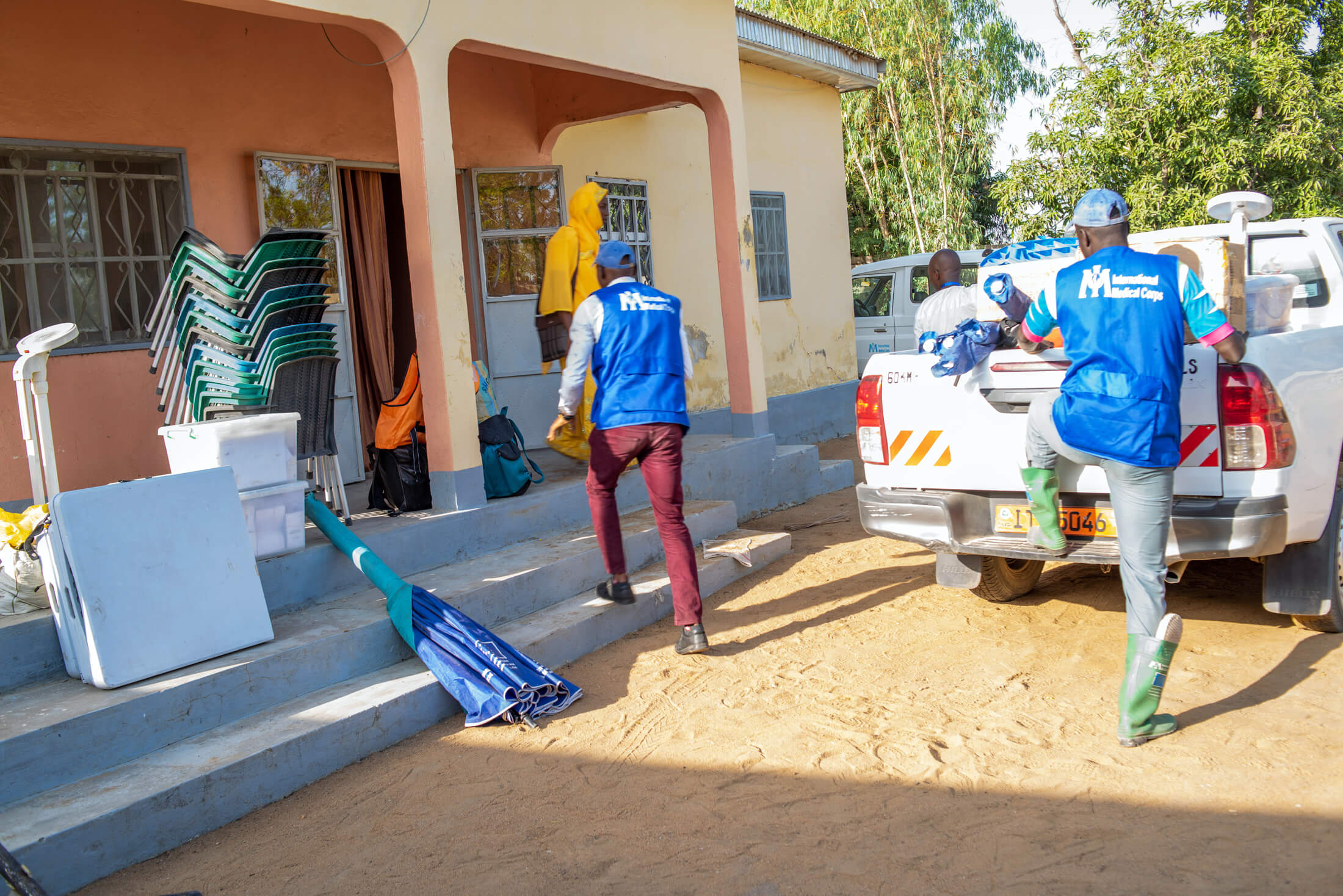
Every Monday morning, staff members from our office in Maga deploy two mobile medical clinics to the Maga and Vele health districts, where the recent flooding has cut off communities from healthcare. Depending on the site, the team loads the supplies they need—including as chairs, tables, tarps, mattress pads and medications—into an International Medical Corps vehicle and then drives to nearby Lake Maga. These images, which are from a recent week of mobile clinic operations, show the team travelling to Malia village in the Vele district.


At the push-off point in Lake Maga, the team transfers the equipment and medications onto a waiting motorised canoe, aided by the boat’s captain, Dairou Youssoufa (striped shirt).


Once the canoe is packed with supplies, they set off on their weekly journey.




Sometimes the team encounters low water levels—in this instance, near Pouss, they had to push the motorised canoe 30 meters across a sandy area before continuing their journey.
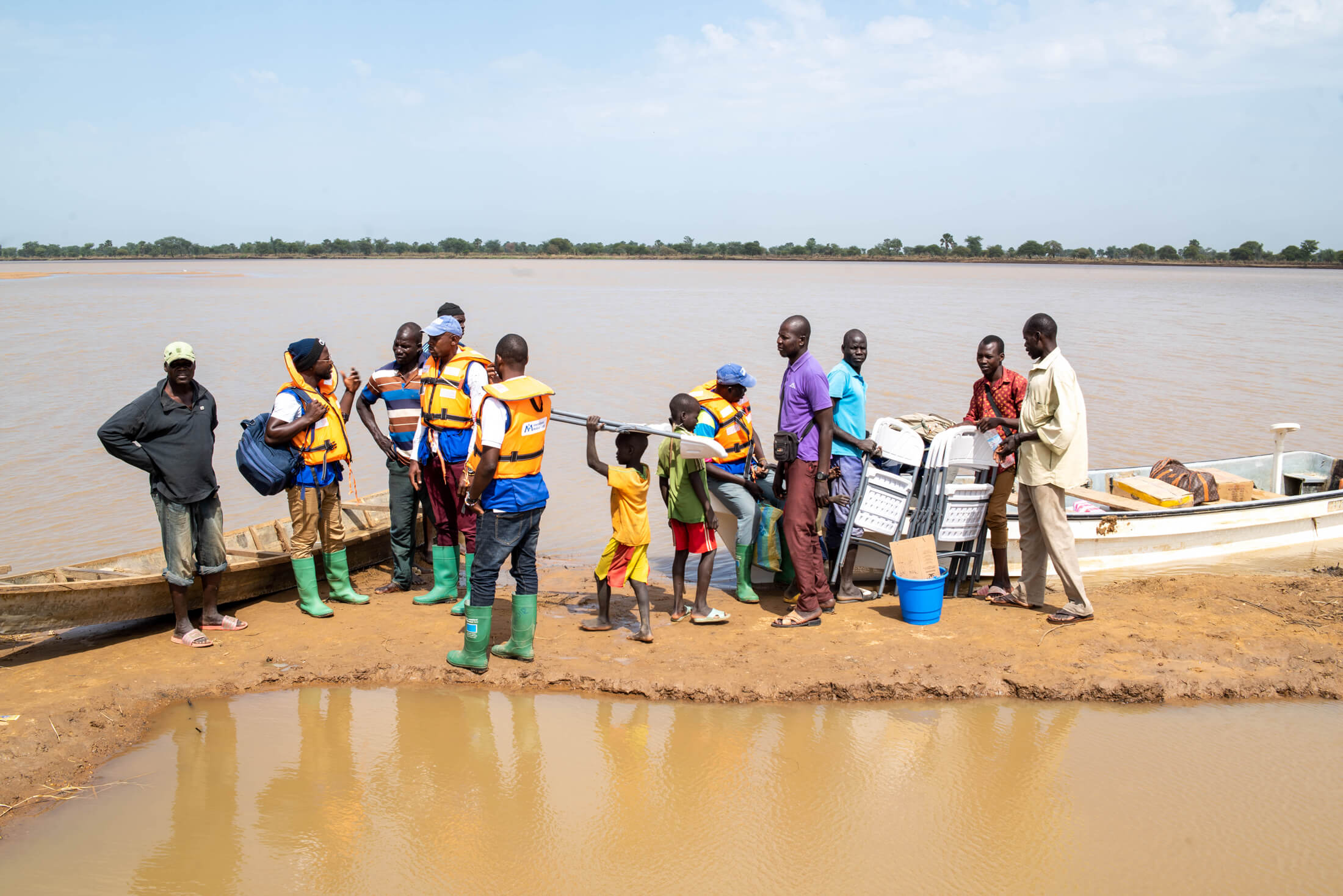
When the team arrives on the Begue Palam riverbank, villagers from Malia are usually there to help unload and transport the mobile clinic equipment to dry land.
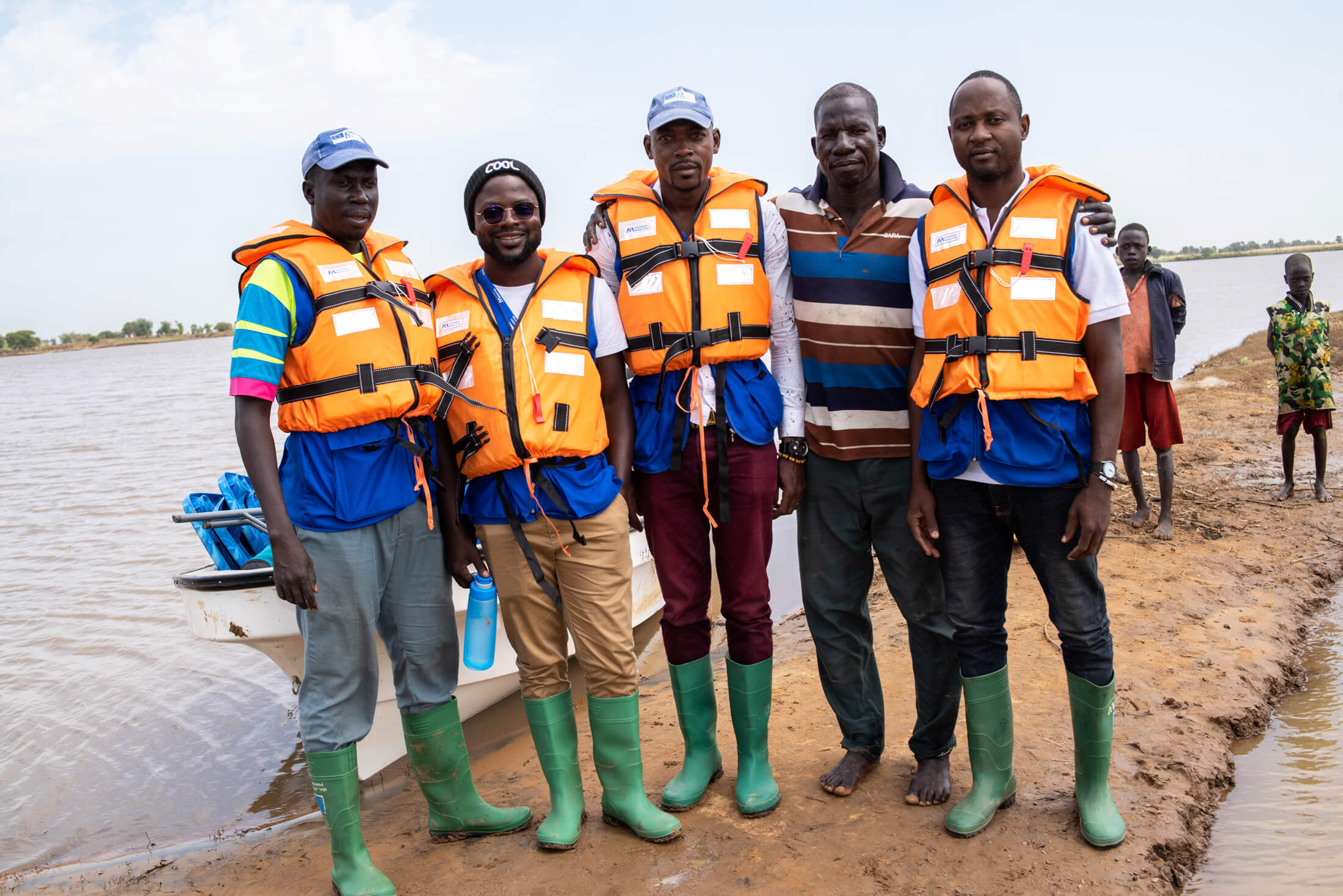
Meet our team! From left to right: Assistant Nurse Adam Hamadou, Medical Officer Dr. Jodel Fogoum Nzongang, Nurse Alain Giresse Abono, Boat Captain Dairou Youssoufa and Nutrition Supervisor Steve Metto Nkoa.


Using hired local drivers, the team members load the supplies onto motorbikes and ride six miles to the Begue Palam Integrated Health Center—one of the sites where they hold mobile clinics.




Once at the site, the team meets with local health centre nurses and community health workers (CHWs) to discuss roles and responsibilities before opening the clinic. They also talk about their plan for selecting and implementing additional mobile clinic sites throughout the week. Once future sites are selected, the CHWs inform their communities through established communication channels.
Dr. Nzonzang talks to waiting patients about International Medical Corps’ services before the team organises patient flow from triage to the pharmacy and begins medical consultations for the day. After clinic activities end, the team returns by motorbike to Begue Palam to stay overnight.




During this week’s visit, the team set up another mobile clinic in the community of Maouda Galang, where health staff conducted primary consultations, nutrition examinations and dispensed medications to patients.
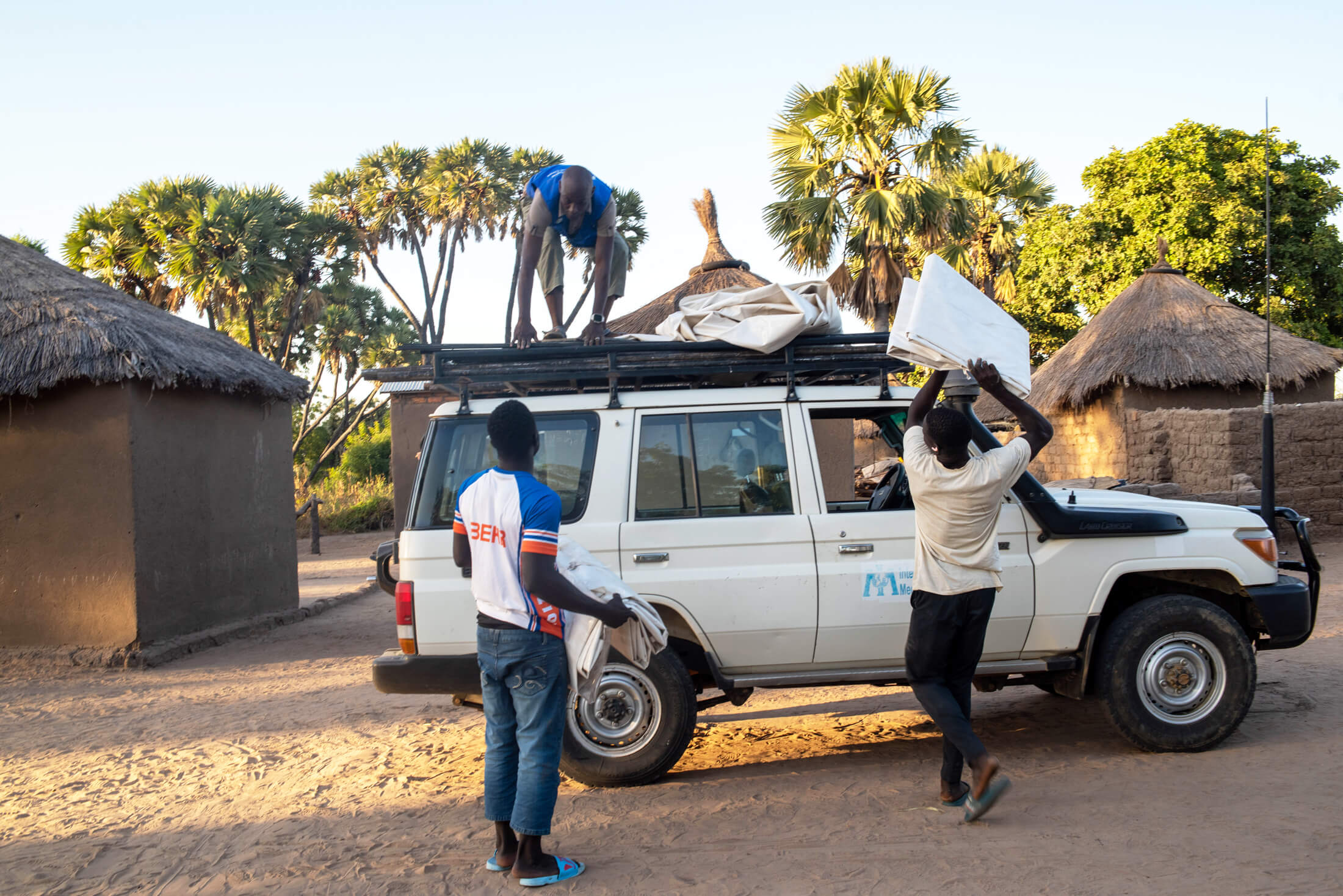
On Friday morning, the team dismantles the mobile clinic sites and pack their equipment into an International Medical Corps vehicle. After a successful week of expertly coordinated patient care, they begin the journey back home to Maga, ready to repeat the process the following Monday.
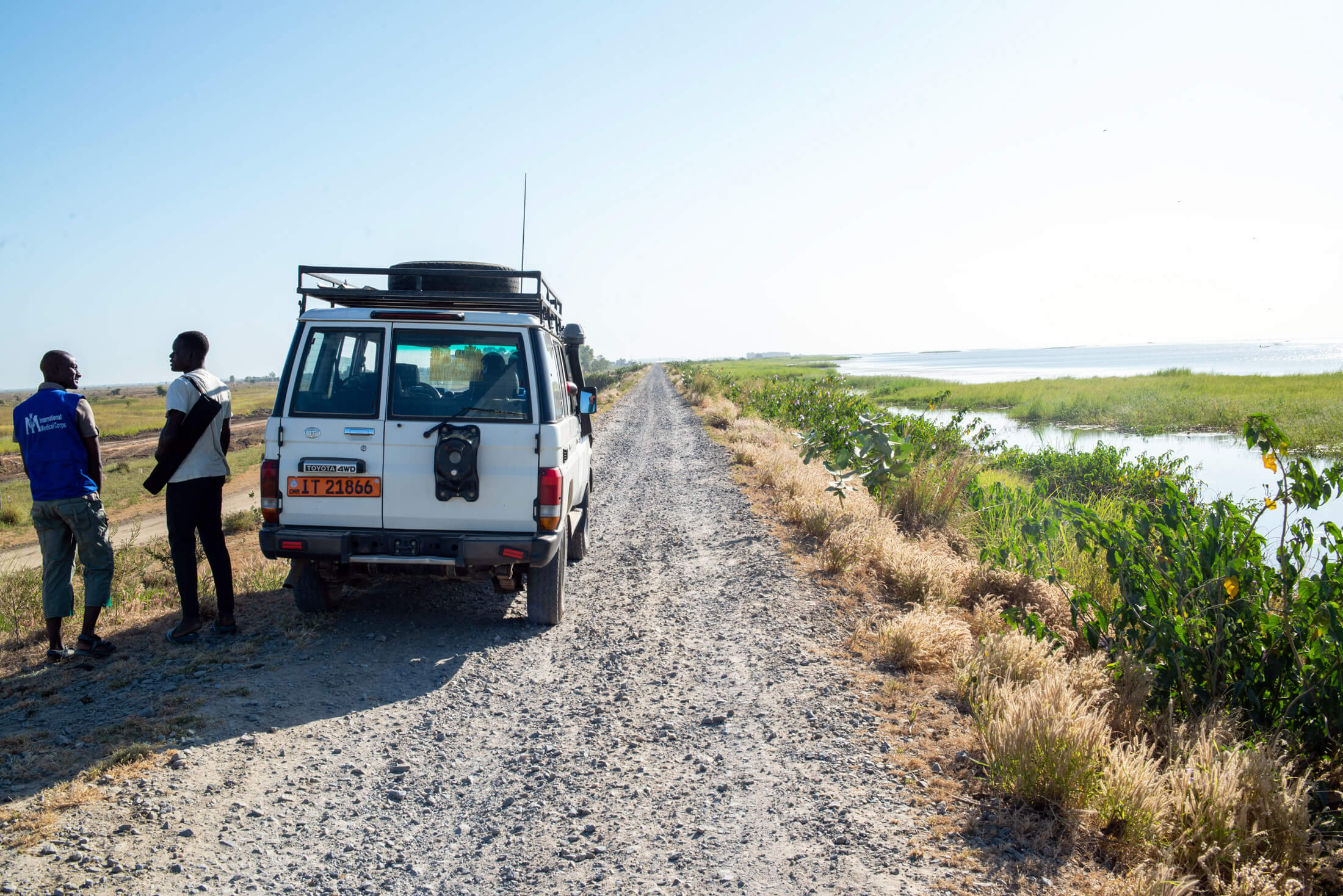
Our mobile medical clinics in the Far North region of Cameroon provide curative consultations, health awareness sessions, rapid diagnostic tests, malnutrition screening for children 6–59 months, vaccinations and nursing care—all free of charge. Between September 2024 and February 2025, we held 45 clinics that reached more than 14,400 people in hard-to-access areas where transportation is nearly impossible. When patients required specialised treatment based on the mobile clinic doctor’s assessment, our team referred them to secondary healthcare facilities, where our program also covered the cost of their care.
Learn more about our work in Cameroon and donate to International Medical Corps today to help us reach people in remote areas with lifesaving health and nutrition services.
